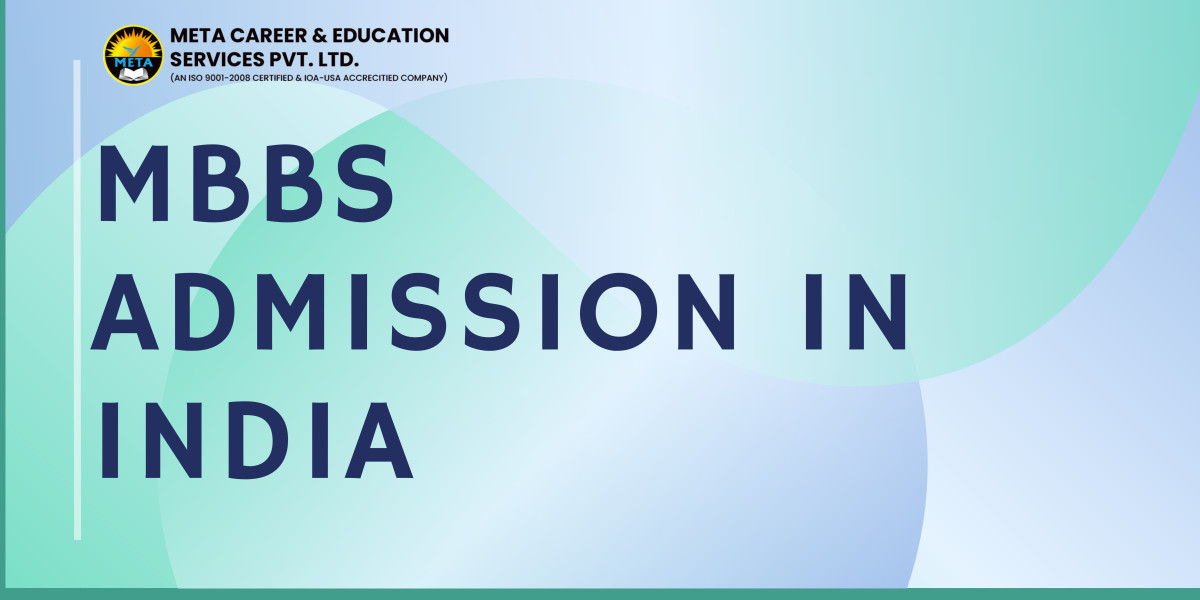Pursuing a career in medicine is a dream for many students in India. The Bachelor of Medicine, Bachelor of Surgery (MBBS) is one of the most prestigious and sought-after degrees. However, securing admission to an MBBS program is a challenging task, requiring a clear understanding of the admission process, eligibility criteria, and other important factors. This article provides a detailed overview of MBBS admission in India, helping aspiring doctors navigate the path to success.
1. Eligibility Criteria for MBBS Admission
To apply for an MBBS program in India, candidates must meet the following eligibility criteria:
Educational Qualification: Students should have passed their 10+2 examination with Physics, Chemistry, Biology/Biotechnology, and English as core subjects. The minimum aggregate marks required for the general category are 50%, while reserved categories (SC/ST/OBC) need 40%.
Age Limit: The minimum age requirement is 17 years as of December 31 of the admission year. The upper age limit is 25 years for general category students, with a 5-year relaxation for reserved categories.
Nationality: Indian citizens, NRIs, Overseas Citizens of India (OCI), and Persons of Indian Origin (PIO) are eligible to apply.
2. Key Entrance Exams for MBBS Admission
The most crucial entrance exam for MBBS admission in India is NEET-UG (National Eligibility cum Entrance Test). Conducted by the National Testing Agency (NTA), NEET-UG is the gateway to all medical colleges in India, whether government, private, or deemed universities.
- NEET-UG: NEET-UG is a national-level exam that covers subjects like Physics, Chemistry, and Biology. The exam consists of 180 multiple-choice questions, and candidates are ranked based on their scores. NEET-UG is mandatory for all MBBS aspirants.
3. MBBS Admission Process in India
The MBBS admission process in India involves several stages:
Step 1: NEET-UG Registration: Aspiring candidates must register for NEET-UG online through the official NTA website. The application process includes filling in personal and academic details, uploading required documents, and paying the application fee.
Step 2: NEET-UG Exam: After registering, candidates must prepare for and appear in the NEET-UG exam. The exam is usually held in May, and the results are declared in June.
Step 3: NEET-UG Counseling: After the results are announced, qualified candidates must participate in the counseling process. The Medical Counseling Committee (MCC) conducts counseling for 15% of All India Quota (AIQ) seats in government medical colleges. The remaining 85% of seats are filled through state-level counseling.
Step 4: Seat Allotment and Admission: Based on the rank, preference, and availability of seats, candidates are allotted a college. They must report to the allotted college for document verification and complete the admission formalities.
4. Top MBBS Colleges in India
India is home to several top-ranking medical institutions known for their quality education and infrastructure. Some of the best MBBS colleges in India include:
- All India Institute of Medical Sciences (AIIMS), New Delhi
- Christian Medical College (CMC), Vellore
- Armed Forces Medical College (AFMC), Pune
- Maulana Azad Medical College (MAMC), New Delhi
- King George's Medical University (KGMU), Lucknow
5. Important Considerations for MBBS Aspirants
Preparation for NEET-UG: As the competition for MBBS seats is fierce, thorough preparation for NEET-UG is essential. Candidates should focus on NCERT textbooks, practice mock tests, and revise important concepts regularly.
Reservation Policies: Candidates must be aware of the reservation policies applicable to them. Seats are reserved for SC, ST, OBC, EWS, and PwD candidates as per government regulations.
Financial Planning: MBBS courses, especially in private colleges, can be expensive. Candidates should plan their finances well in advance and explore scholarship opportunities if needed.
Alternative Options: Students who do not secure a seat in India can explore options for studying MBBS abroad. However, they must ensure that the degree is recognized by the National Medical Commission (NMC) for practicing in India.
6. Conclusion
MBBS admission in India is a highly competitive process that requires dedication, hard work, and a well-structured approach. By understanding the eligibility criteria, preparing effectively for NEET-UG, and staying informed about the counseling process, aspiring medical students can increase their chances of securing admission to a reputed medical college. Pursuing an MBBS degree is a stepping stone to a rewarding career in medicine, and with the right guidance, success is within reach.



